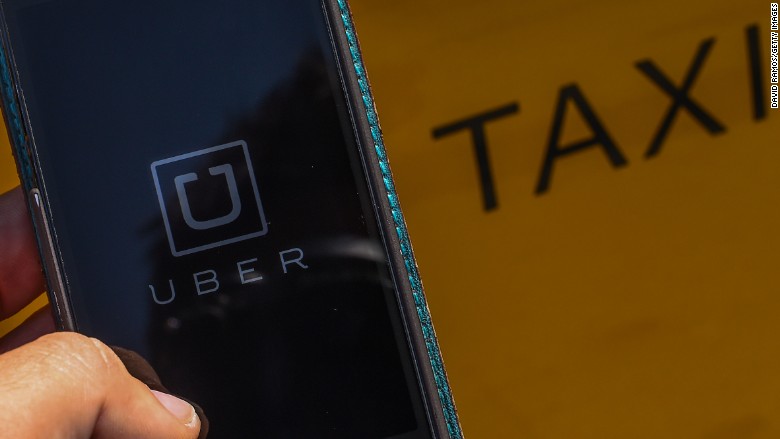
Yes, New York City is notorious for its traffic problems -- but a $2 million study found that Uber isn't the bad guy.
The highly-anticipated study was commissioned over the summer to examine how the ride-hailing firm is impacting traffic congestion in Manhattan.
In July, New York City Mayor Bill de Blasio halted his controversial plan to heavily cap the company's growth. He said he reserved the right to do so if the study deemed it was adding to the city's congestion. A cap in New York City -- one of Uber's biggest U.S. markets -- would have been a major hit to the company.
But no cap is necessary, for now. The study, which examined the impact of Uber and other ridesharing services on Manhattan's bustling Central Business District (below 60th street), found that Uber isn't disproportionately driving congestion any more than other vehicles on the road.
"Vehicles of all types play a role in congestion," read the study, which was conducted by consulting firm McKinsey & Co. between August and October.
Related: GM invests $500 million in Uber rival Lyft
However, the study noted that services like Uber and Lyft could have a bigger impact on congestion in years to come. If riders start opting for those services instead of public transportation, that would add to traffic congestion. For now, most people use e-hailing services to replace taxis.
Uber, the most valuable privately held company in the world, won't continue to go unregulated, though.
The report states that there needs to be a leveled playing field for all ride services -- yellow cabs and Ubers alike.
The New York City Council is expected to propose legislative changes to address some of the study's findings in the coming weeks.
They will focus on areas like accessibility, driver licensing requirements and consumer protections.
The study also noted the disparity in the fee structure between taxis and e-hailing services. Taxi riders are charged surcharges, which go to the city and the MTA; while Uber and Lyft riders do pay a sales tax on rides, a much smaller portion goes to the MTA. The study recommended new regulations to make sure mass transit funding didn't decrease.
Uber is chalking it up the study's findings as a victory.
"We appreciate the thoughtful process Mayor de Blasio and his administration have engaged in over the last several months to improve the commercial car industry," said Josh Mohrer, Uber New York General Manager, in an emailed statement. "We will be reviewing the policy ideas and hope to work with the de Blasio administration and the City Council on implementing many of them."

